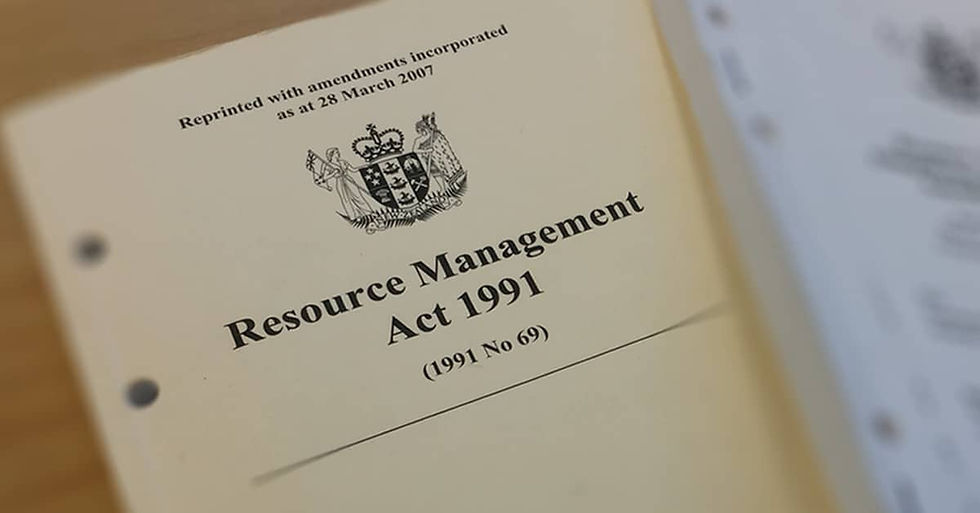How Land Development Consulting Helps Avoid Costly Pitfalls in New Zealand Projects
- pmseoquartz
- Aug 8
- 4 min read
Updated: Aug 19

Land development in New Zealand holds enormous potential, from increasing property value to unlocking subdividable land and contributing to sustainable urban growth.
But the path to a successful development project is often more complicated than it seems.
Delays, budget blowouts, rejected applications, and unexpected site issues are all too common, especially when landowners go in without expert advice. That’s where land development consulting comes in.
Whether you're a first-time developer, landowner, investor, or rural property holder, this guide explains how smart consulting saves time, reduces risk, and sets you up for success.
Why Many Development Projects Go Off Track in NZ
Even the most promising land parcels can run into serious problems when early-stage planning is skipped. Here are some of the most common reasons development projects stall in New Zealand:
Zoning misunderstandings: Many landowners assume they can subdivide or build without understanding local zoning rules or overlays.
Unrealistic expectations: Without a feasibility study, developers often underestimate costs, council requirements, or infrastructure needs.
Site-specific issues: Flood risk, slope, soil type, or existing easements can derail plans late in the game.
Consent delays: Submitting incomplete or non-compliant resource consent applications can lead to weeks or months of setbacks.
Reactive problem solving: Waiting until a problem arises costs more than preventing it.
Too often, landowners don’t realise these pitfalls exist until they’ve already committed time and money. Early-stage consulting ensures that potential issues are identified and planned for in advance.
Feasibility First: Why Early Consulting Makes All the Difference
The smartest developers start with a feasibility study. This is the first step in determining what’s realistically possible on your site, financially, legally, and practically.
What a feasibility study includes:
Review of district plan and zoning rules
Site constraints: flood zones, slope, vegetation, soil
Infrastructure requirements (stormwater, sewage, roading)
Legal boundaries and access
Development options and timeline estimates
Resource consent likelihood
A quality land development consultant will help you:
Avoid investing in non-developable land
Predict council approval chances
Budget accurately
Choose the right path forward (subdivision, infill, rezoning, etc.)
Tip: Get a feasibility assessment before you purchase land or draw up designs. This step can save tens of thousands in rework or legal costs.
Explore Land Development Consulting Services at Buckton
Common Pitfalls & How a Consultant Helps You Avoid Them
Planning & Regulation Confusion
Each council has its own District Plan, zoning rules, and permitted activities.
Coastal areas, flood-prone zones, and heritage overlays can restrict development.
A consultant deciphers the fine print, aligns your plans with rules, and identifies the path of least resistance.
Site-Specific Problems
Some sites have geotechnical challenges, limited legal access, or require easements.
Others need costly earthworks due to steep grades or poor drainage.
Early surveying and GIS analysis uncover these risks before construction begins.
Resource Consent Delays
Submitting incomplete or vague applications often results in council requests for more information.
Consultants prepare comprehensive applications with all technical reports upfront.
This improves your chance of approval on the first attempt and reduces council back-and-forth.
Financial Surprises
Development levies, engineering costs, road upgrades, and utility connections can catch owners off guard.
A consultant gives you a full picture of expected costs, preventing mid-project budget stress.
Technology That Gives You an Edge: GIS Mapping & Aerial Surveys
Modern land development isn’t just about paperwork, it’s about data-driven insight. Buckton uses advanced tech to make better, faster decisions.
GIS Spatial Systems:
Layers council zoning maps, flood zones, utility lines, and contour data into one dashboard.
Identifies development constraints visually and helps with scenario planning.
Aerial & Drone Surveys:
High-resolution, real-time site data
Ideal for assessing large rural blocks, waterways, bush coverage, and topography
More accurate and faster than ground-based methods
3D Site Modelling:
Helps visualise development impacts
Useful for presentations to councils or investors
These tools reduce guesswork and improve design, budgeting, and approval success.
Why Choose Buckton Surveyors & Planners?
With over 60 years of experience in land development across Auckland, Northland, and Waikato, Buckton offers something many firms don’t: deep local knowledge combined with modern innovation.
What sets us apart:
Registered professional surveyors and resource consent planners
Long-standing relationships with regional councils
Proven success helping clients through complex subdivisions and infill developments
Clear, honest advice grounded in experience
Whether you're subdividing farmland in Waikato or managing an infill project in Warkworth, Buckton delivers full-service support, from concept to compliance.
Conclusion: Avoid the Stress. Start with Smart Consulting.
Land development in New Zealand doesn’t have to be stressful. With the right guidance, you can avoid costly surprises, streamline council approvals, and maximise your property’s potential.
Start with a feasibility assessment. It’s your best defense against delays and cost overruns.
Book a Free Consultation with Buckton’s Land Development Experts
Let us help you plan smarter and build better.
FAQ
What does a land development consultant do in NZ?
They assess feasibility, navigate council regulations, coordinate with surveyors and planners, and ensure your project meets legal, environmental, and engineering requirements.
How much does land development consulting cost in NZ?
Prices vary by project size and complexity. Feasibility studies may start from NZD $2,000+. Buckton provides upfront quotes.
When should I contact a land development consultant?
Before you buy land or apply for consents. Early advice prevents expensive mistakes.
What are the most common issues with land development in NZ?
Zoning restrictions, site conditions, delayed consents, and budget underestimation.
Can I develop rural land in NZ?
Yes, but it depends on zoning and council rules. A consultant will review your site and guide your options.





Comments